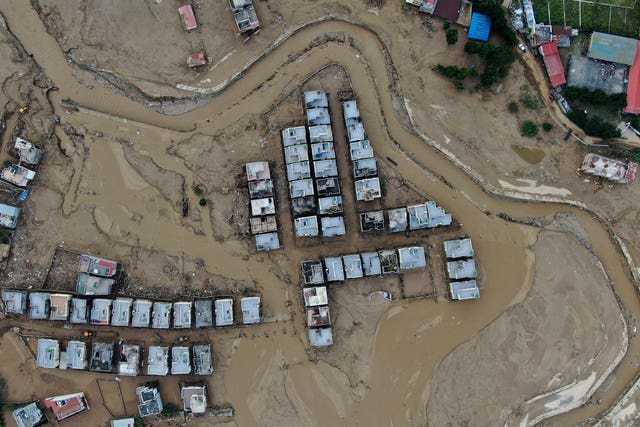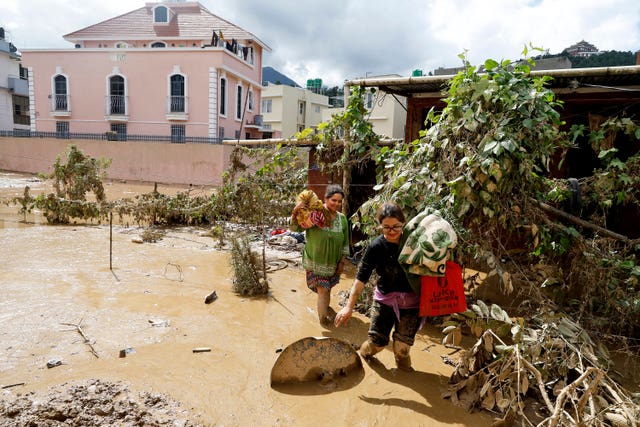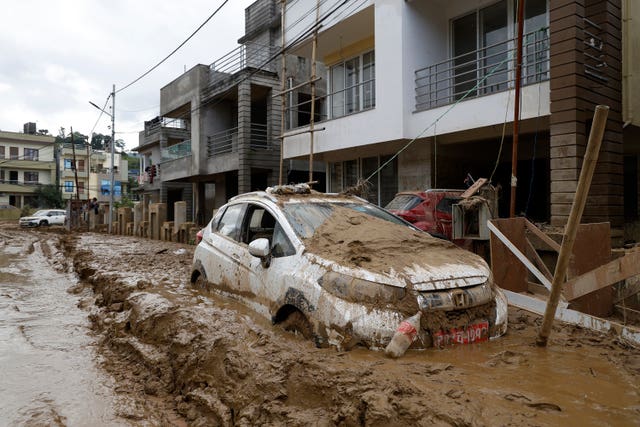Search continues in Nepal after more than 200 killed in flooding and landslides
Prime Minister Khadga Prasad Oli said the government would help the thousands who had been impacted by the disaster.

Rescuers were continuing to search for people still missing and attempting to recover the bodies of those killed in weekend flooding and landslides in Nepal in which more than 200 people died.
The weather was improving, and workers were clearing the roads blocked by landslides.
But sections of several roads next to raging rivers had been washed away and these repairs would be likely to take longer.

The disaster came just ahead of the country’s biggest festival Dasain, which begins on Thursday when people return home to celebrate with their families. The damage to roads is likely to hamper festival travel plans for many.
Prime Minister Khadga Prasad Oli told reporters on Tuesday the government would continue working to find the missing people and help the thousands who had been impacted by the flooding and landslide.
Mr Oli’s administration has been criticised for its slow response to the crisis.

“We were prepared for a disaster but we could not predict it would be of this big scale,” Mr Oli said.
Several vehicles stranded for hours on a road some 10 miles (16km) from Kathmandu were hit by a landslide, killing three dozen people. It took hours for help to reach them and more time for equipment to dig out the bodies.
The government’s chief secretary Eak Narayan Aryal said the death toll reached 224 on Tuesday, while 158 people were injured. There were still 24 people missing and search efforts were continuing for them.
Mr Aryal said 16 hydroelectricity power plants were damaged by flooding, which lowered electricity production in Nepal, while 18 other projects under construction were also damaged.

Of the 37 roads damaged, only nine had so far reopened for traffic.
Police and soldiers were assisting with rescue efforts, while heavy equipment was used to clear the landslides from the roads. Schools and colleges were closed until Tuesday to help clean up the premises and to give students time to recover.
The days of heavy rain came towards the end of Nepal’s monsoon season, which began in June and usually ends by mid-September.





